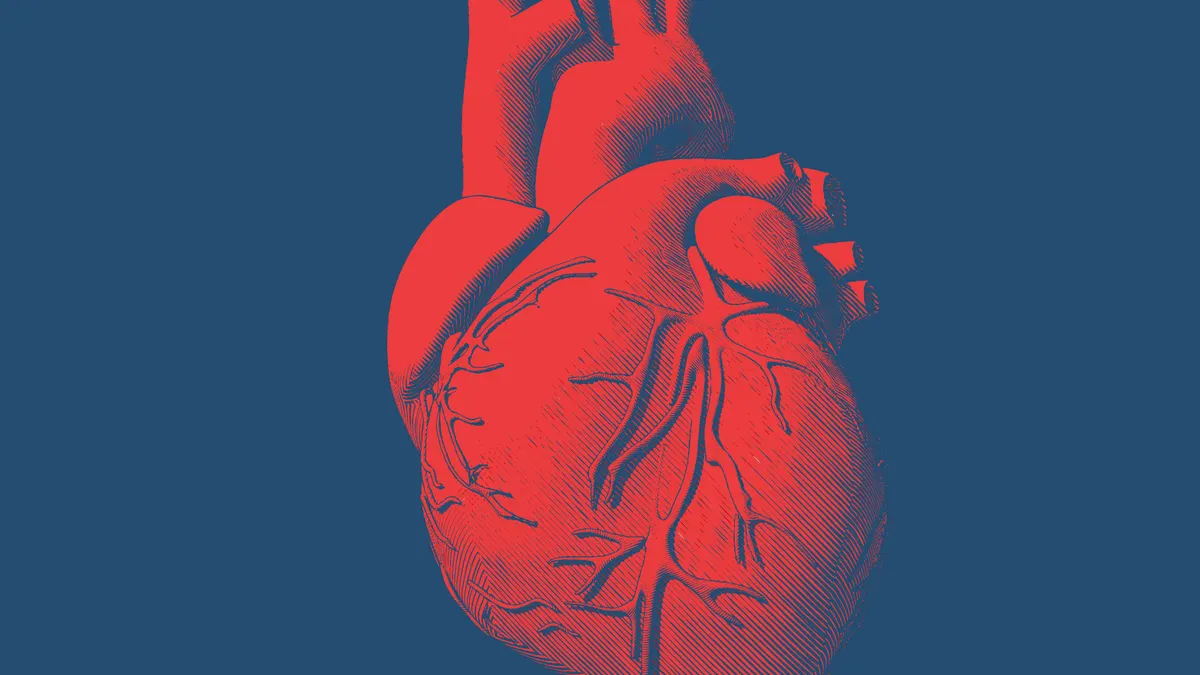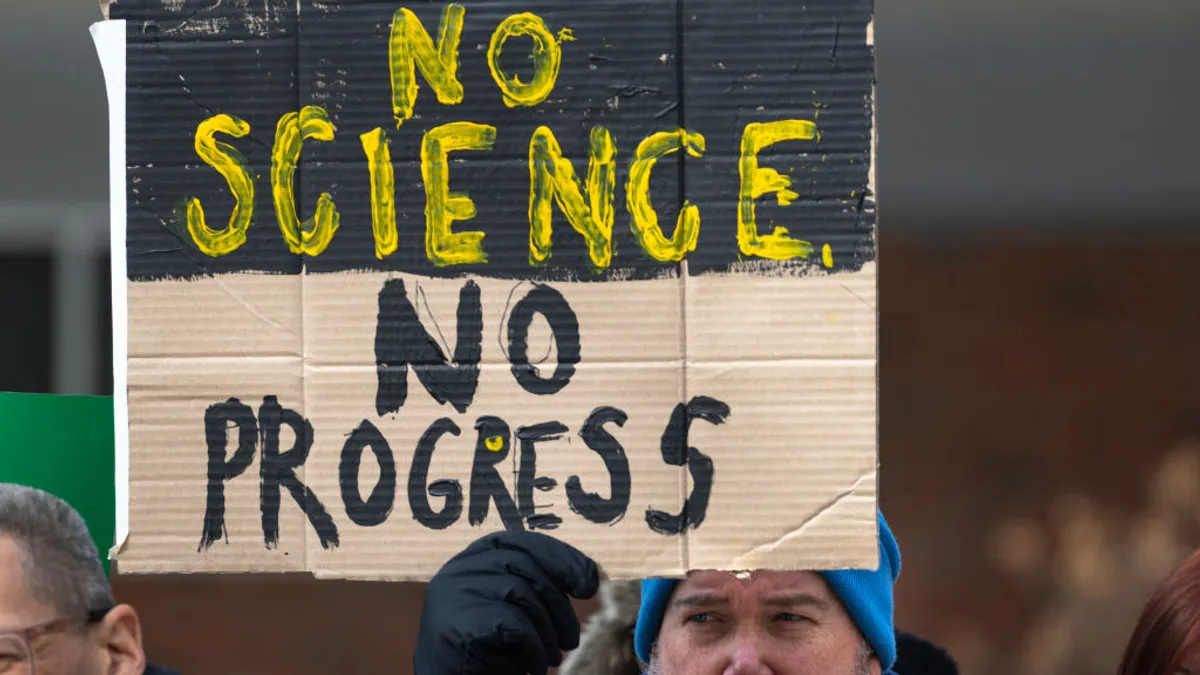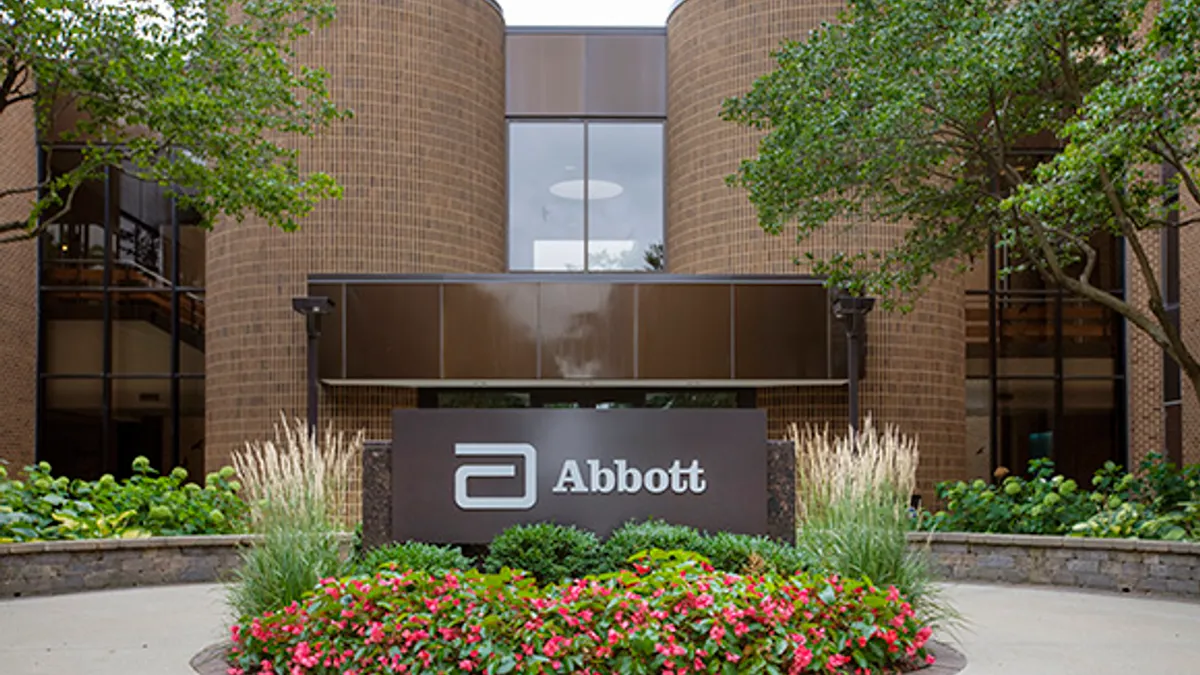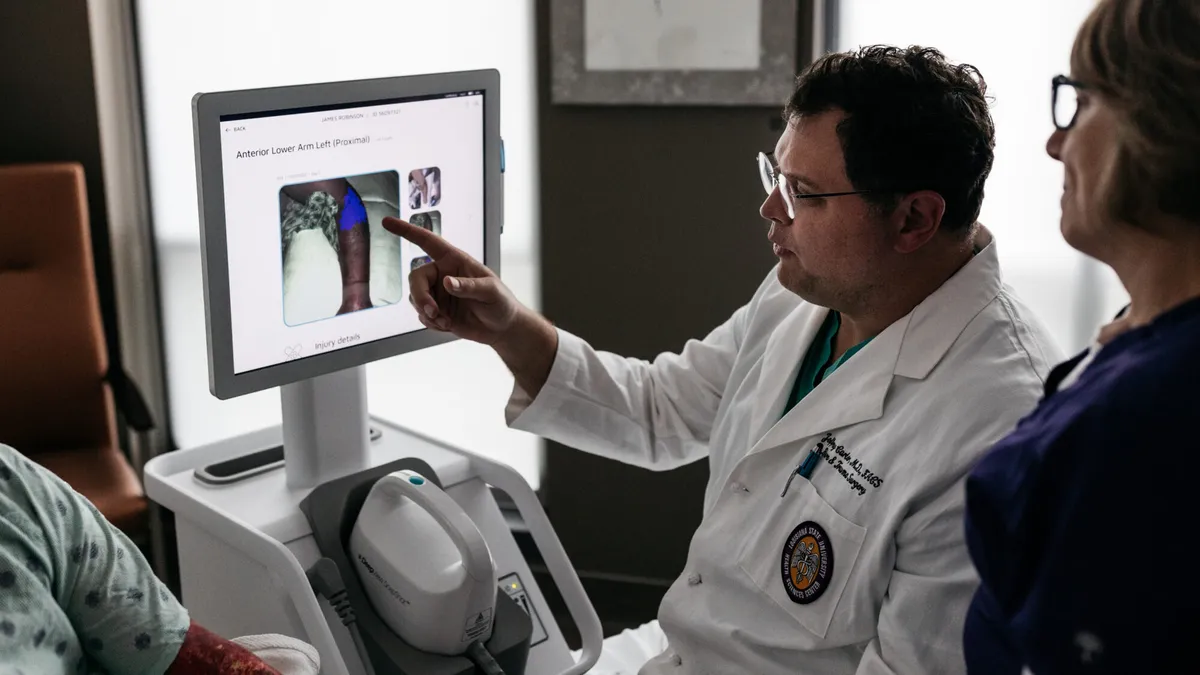The Cardiovascular Research Foundation's Transcatheter Cardiovascular Therapeutics conference, running Wednesday through Sunday, will offer a look at more than 30 late-breaking clinical trials and science presentations online.
The Journal of the American College of Cardiology, Journal of the American Medical Association, The Lancet, and the European Heart Journal are co-hosting various sessions. Medtech companies in the spotlight include Abbott, Boston Scientific, Medtronic, and Edwards Lifesciences. Studies with a COVID-19 angle are also included.
Below are some of the key medtech presentations on the agenda:
Wednesday, Oct. 14
PROSPECT II & ABSORB. The PROSPECT II component of the trial examines the use of low-risk imaging to identify plaques prone to rupture or clinical events in patients with unstable coronary artery disease. The PROSPECT ABSORB sub-study compares treatment of plaques with Abbott's Absorb bioresorbable vascular scaffold plus medication to treatment with medical therapy alone. Although Abbott stopped selling Absorb in 2017 after the product was linked to a higher rate of device thrombosis than metallic stents, the company continues to follow implanted patients to assess long-term outcomes after the scaffold has dissolved.
COVID-19 STEMI Registry. The North American COVID-19 STEMI Registry follows COVID-19 positive patients, or people under investigation, with ST-segment elevation myocardial infarction or new-onset left bundle branch block. Dubbed the NACMI, the registry was formed by the Society for Cardiovascular Angiography and Interventions (SCAI) and the Canadian Association of Interventional Cardiology (CAIC). Data will be compared against the existing Midwest STEMI Consortium registry and is expected to inform treatment guidelines for COVID-19 patients.
Thursday, Oct. 15
SCOPE II. The trial compares the safety and performance of Boston Scientific's Acurate Neo aortic valve and transfemoral delivery system with Medtronic's CoreValve Evolut R transcatheter aortic valve system. Boston Scientific acquired the Acurate valve system from Symetis in 2017.
REFLECT II. Keystone Heart's TriGuard cerebral embolic protection device, designed to protect the brain during transcatheter aortic valve implantation, is compared for safety and effectiveness against a control group of patients undergoing TAVI without the protection device. China's Venus Medtech bought Keystone Heart in 2018.
MITHRAS. The study assesses whether the interventional closure of a persistent iatrogenic arterial septal defect 30 days after an Abbott MitraClip mitral valve repair procedure improves clinical outcomes.
DISRUPT CAD III. The U.S. pivotal study evaluates the safety and effectiveness of Shockwave Medical's intravascular lithotripsy device to treat severely calcified coronary arteries.
XIENCE 90/28. Dual antiplatelet therapy, which is a combination of aspirin and a second anti-clotting medication that aims to prevent stent thrombosis and major adverse events, is assessed at one month and three months after implantation with Abbott's everolimus-eluting stent in patients at high bleeding risk.
DEFINE-PCI. The study, sponsored by Volcano, assesses the incidence and causes of residual ischemia, or inadequate blood supply, in patients after percutaneous coronary intervention. Philips acquired Volcano in 2015.
ULTIMATE. Three-year outcomes are provided for patients who had intravascular ultrasound-guided implantation of a drug-eluting stent, compared to an angiography-guided DES.
SOLVE-TAVI. The study aims to show equivalence of Medtronic's second-generation self-expandable CoreValve Evolut R heart valve to Edwards' second-generation balloon-expandable Sapien 3 valves and of local anesthesia with conscious sedation in comparison to general anesthesia in high-risk patients with severe aortic stenosis receiving a transcatheter aortic valve implant.
STS/ACC TVT Registry. Data focuses on cerebral embolic protection and transcatheter aortic valve replacement outcomes. The registry is a collaboration between the Society of Thoracic Surgeons and the American College of Cardiology.
MitraBridge. The study examines outcomes for Abbott's MitraClip treatment as bridge therapy to a heart transplant.
Global EXPAND. One-year data is provided for Abbott's third-generation MitraClip NTR and XTR systems.
Saturday, Oct. 17
Host-Reduce-Polytech-ACS. Durable polymer is compared to bioabsorbable polymer for drug-eluting stents in patients with acute coronary syndrome. Boston Scientific, Abbott and Terumo are all sponsors of the trial.
IREMMI. The study evaluates outcomes for heart attack patients with acute mitral regurgitation, with and without cardiogenic shock, treated with Abbott's MitraClip.
SCOPE I. One-year results are presented from a trial comparing the safety and efficacy of Boston Scientific's Acurate Neo aortic valve and Acurate transfemoral delivery system to Edwards' Sapien 3 valve.
TRANSIT. Examines the use of TAVR procedures in individuals for whom one TAVR procedure has failed.
PARTNER 2. Five-year follow-up data from Edwards' aortic valve-in-valve registry is presented.
Sunday, Oct. 18
VOYAGER PAD. Sponsored by Bayer, the study looks at the long-term safety and efficacy of drug-coated devices using rivaroxaban in peripheral artery revascularization to reduce risk of major thrombotic vascular events.
IN.PACT BTK. The trial assesses safety and efficacy Medtronic's paclitaxel-coated balloon compared to conventional percutaneous transluminal angioplasty in the infrapopliteal arteries.
ILLUMENATE. Four-year results are presented from a study of Philips Spectranetics' low-dose paclitaxel-coated balloon in de novo and restenotic femoropopliteal lesions.
FLASH Registry: Newly public Inari Medical's FlowTriever system for pulmonary embolism, which received FDA clearance in 2018, is evaluated in a real-world population.


















